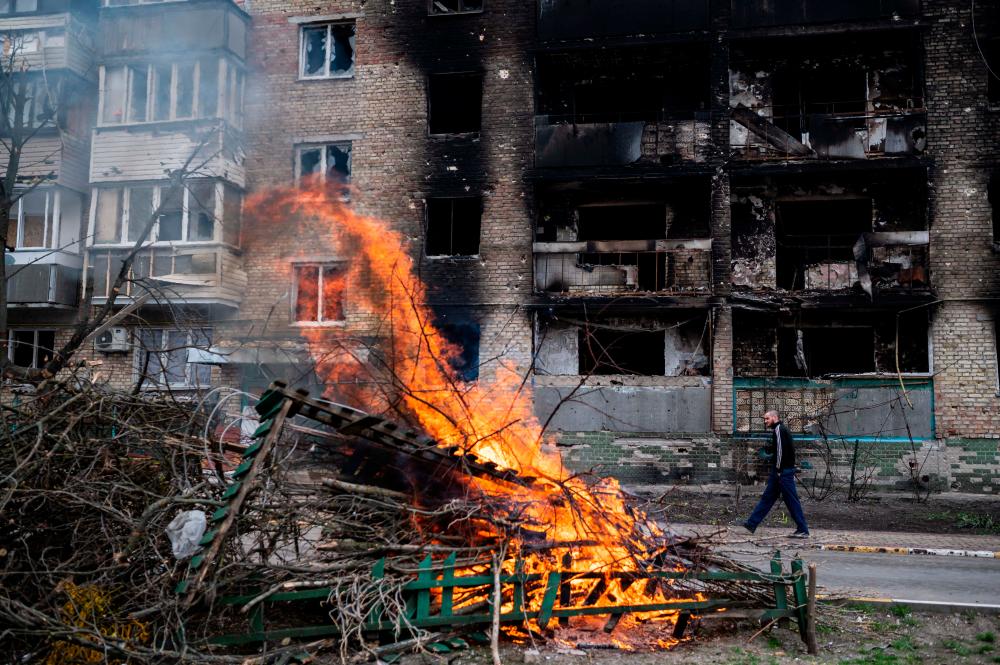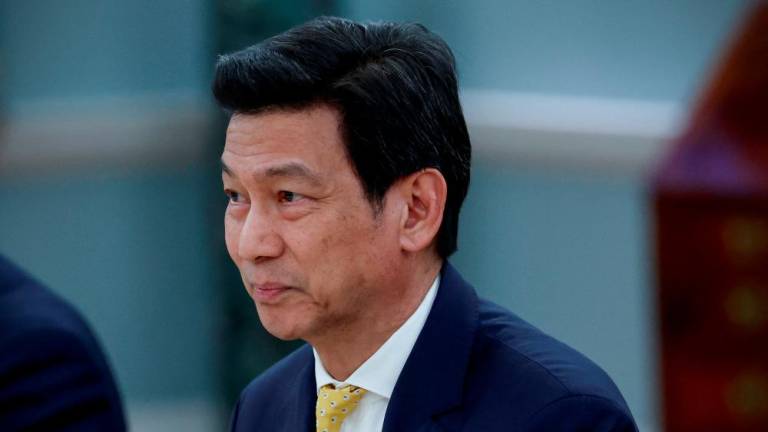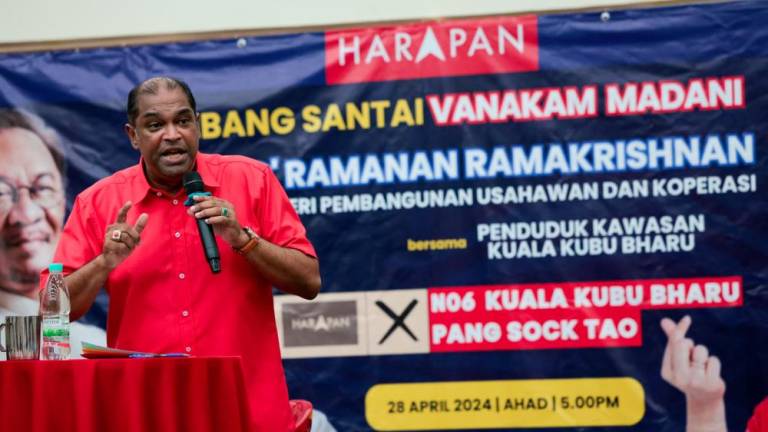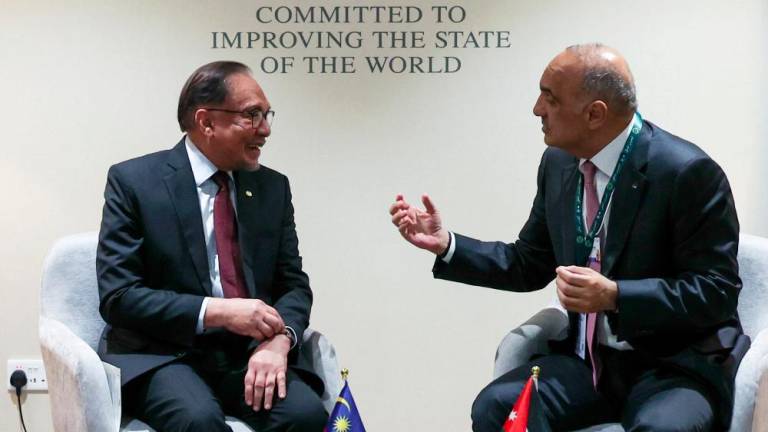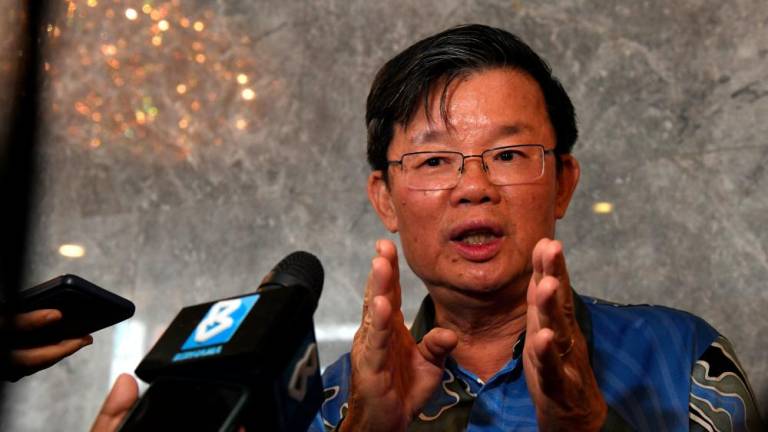DOES the hostility between Russia and the West originate from a fundamentalist mindset that splits the world into two halves – the good and the bad, the saved and the unsaved, the democrats and the autocrats?
The religious fundamentalist strategy to overcome this bipolar division of humanity is to convert or confine the opposing side. Hence, zealous adherents of the two biggest religions in the world see it as their sacred duty to convert non-believers.
Politics reflects this bifurcation so neatly that there is obviously a connection with religion and its dominating influence over statesmen. American president Joe Biden’s view of a global contest that pits democracies against autocracies stems from the fundamentalist paradigm. This view is two-faced because religious authorities themselves wield autocratic power.
Should we demand that all religious authorities be elected in a poll of adherents?
Russia, in rejecting liberal democracy in favour of its preferred strongman autocratic style, is just as much ensnared as the West is by this dichotomy, and Russian president Vladimir Putin justifies the invasion of Ukraine as a pre-emptive strike.
Another war in the making is that this “convert or confine” strategy of the West is also being applied to its relationship with China, a nation that America sees as ruled by a belligerent autocracy that ought to be overthrown.
How is this bifurcation perpetuated from decade to decade and from century to century, moving from religion across to politics? Architectural Prof Mohd Tajuddin Mohd Rasdi pins it on the flawed methodology of religious instruction. We place adherents in a fenced-up place or tight box so they can all be “safe” from the “outside” world, he says.
Last year, a Cabinet minister announced that “non-Muslims are free to propagate their faiths among themselves but not among Muslims”.
If propagation means conversion with renunciation of your current faith, why is it all right for non-Muslims to convert one another?
If it is wrong to convert a Muslim, it has to be equally wrong for anyone to convert a Hindu, Buddhist, Christian, Taoist or Jain. Many Indian states have passed laws forbidding religious conversion.
Probing deeper, are factional identities essential or merely functional? When people become too proud of their ethnic or religious identities, the consequences will always be dreadful.
Over the past 30 years, 75% of civil wars in the world have been fought between ethnic and religious groups that jostle for dominance within nations.
Our moral sensitivities get dissolved by ethnocentrism and religious fundamentalism, making it easy to kill “others” that we see as evil.
Down through history, good people intoxicated by religious fundamentalism have become killers without remorse.
The good in oneself can turn bad, as Canadians now realise with the shocking discovery of mass graves in which more than 4,000 native tribal children were buried after dying from abuse in a 20th century assimilation drive to convert them out of their cultures and into the dominant religion of Canada.
Mass assimilation drives are reinforced by economic policy. The Sami indigenous tribal people of Finland, Norway and Sweden live in mineral-rich homelands, where they carry out their traditional livelihood of reindeer herding. With their absorption into mainstream culture, these homelands are opened up for mining. The same phenomenon is happening in some parts of Malaysia.
This bifurcation of humanity into the civilised and the primitive, the abode of peace for the faithful and the abode of war for the infidels, the democratic liberals and the autocratic tyrants is rooted in the political history of West Asia.
Still influencing the worldviews of half the world’s population today was the flight of Jews 3,500 years ago from Egypt to the Sinai desert.
To persuade the wandering Jews to form a huge army comprising all able-bodied men so they can seize Palestine that was then known as Canaan, it was necessary to depict the Canaanite religions as evil and that God wanted them destroyed. So the Jewish army went in, smashed the idols, burned down the cities and eliminated Canaanite society.
The Jews became the new people of Canaan, now sanctified with the name Israel. Long periods of Jewish history were, henceforth, governed under theocracy (rule by religious authorities).
A fundamentalist paradigm of dividing the world into the saved and the unsaved has shaped religious-political conditions throughout West Asia to this day, ensuring lasting warfare with just short bouts of peaceful years, like pit stops in the oases.
Two religions with affinity to Judaism have long exhibited this polarised mindset and a penchant for displaying their identities, but the Hindu nationalists of India and the Buddhist nationalists of Myanmar and Sri Lanka have now adopted this practice of bifurcating humanity.
The hazardous results of confining diversity are only felt many decades later when catastrophes overtake nations.
What leads surely to national catastrophe is conformism to groupthink, repression of divergent inputs, absence of collaborative efforts to integrate diversities, reduction of creative thinking, spread of ethno-nationalism, sustained underperformance, and a growing tendency to move in the wrong direction.
The diversity of religions and cultures is as natural and as necessary as the diversity of animals and plants.
In the previous article, this column highlighted the discoveries of Canadian researchers that trees in the forest transfer nutrients to one another regardless of species.
It comes as a stunning realisation that plants are better than civilised humans in creating webs of collaboration in a forest to ensure healthy growth for all.
Trees of different species trade photosynthetic carbon back and forth on a daily basis through a thick underground network of micorrhizal fungus. And by the way, primitive tribes live integrated with nature. They take only what is needed.
If they want to make clothing, they will slice some bark off a tree and let the tree regrow new bark.
Today, we need these forest people to show us how to dissolve the separation of humanity from nature if we are to save the world.
We further need to combine the respective strengths of democracy and autocracy, while eliminating their weaknesses.
Many democratically elected leaders are corrupt and weak in governance, while at least one autocratic leader has pulled his nation out of poverty.
The writer champions interfaith harmony. Comments: letters@thesundaily.com




